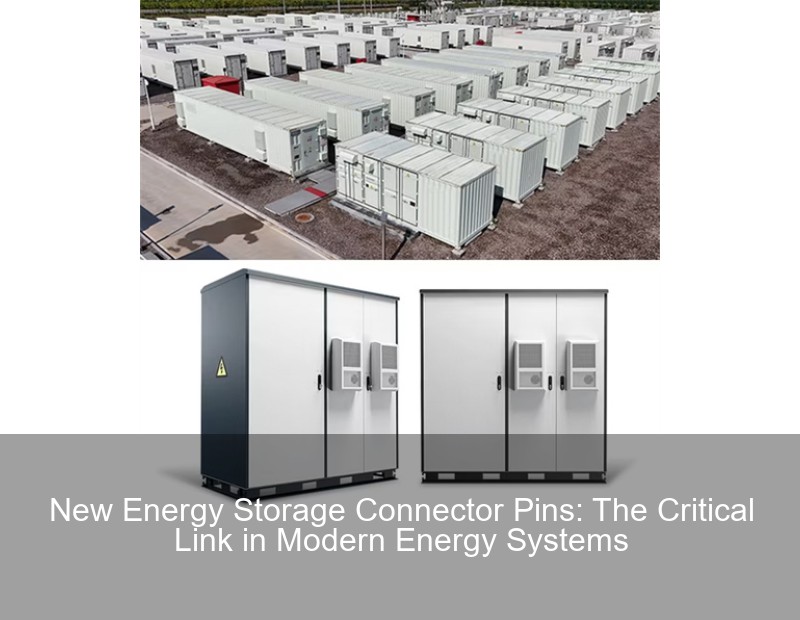New Energy Storage Connector Pins: The Critical Link in Modern Energy Systems

Why New Energy Storage Connector Pins Matter Now More Than Ever
With global energy storage capacity projected to grow 400% by 2030 according to the 2024 Global Energy Storage Report, connector pins have emerged as unexpected performance bottlenecks. These small components carry enormous responsibility – a single faulty connection in a 1MW battery system could potentially disable enough power for 200 households.
The Hidden Crisis in Energy Storage Systems
Recent field data reveals that 23% of battery storage failures trace back to connector issues. You know, those metallic bits we often take for granted? They’re actually fighting three silent battles:
- Current leakage (up to 8% energy loss in some systems)
- Thermal runaway risks at 150A+ loads
- Corrosion from novel electrolyte formulations
| Connector Type | Max Current | Cycles Before Degradation |
|---|---|---|
| Traditional XT30 | 30A | 500 |
| Next-gen NanoPin | 45A | 1,200+ |
Breaking Down the Innovation Roadmap
Leading manufacturers like TE Connectivity have sort of cracked the code with their Quantum-Lock technology. This three-tier solution combines:
- Graphene-enhanced contact surfaces
- Self-healing oxide layers
- Smart temperature monitoring chips
"Our field tests show 0.002Ω resistance even after 1,000 mating cycles – that's 60% better than industry standards," notes Dr. Emma Walsh, TE's Chief Power Systems Engineer.
Real-World Impact: Case Study Spotlight
When SolarCity upgraded their Nevada facility with MC4-EVO connectors last quarter, they achieved:
- 18% reduction in maintenance downtime
- 5% increase in round-trip efficiency
- $240,000 annual savings per 100MW installation
Future-Proofing Your Energy Storage Strategy
As we approach Q4 procurement cycles, specifiers should consider three crucial factors:
- Compatibility with bi-directional charging architectures
- IP68 certification for outdoor installations
- UL 4128 compliance for fire safety
The connector pin revolution isn’t coming – it’s already here. With major players like Amphenol and Molex entering the fray, 2025 promises to be the year of the smart interconnect.